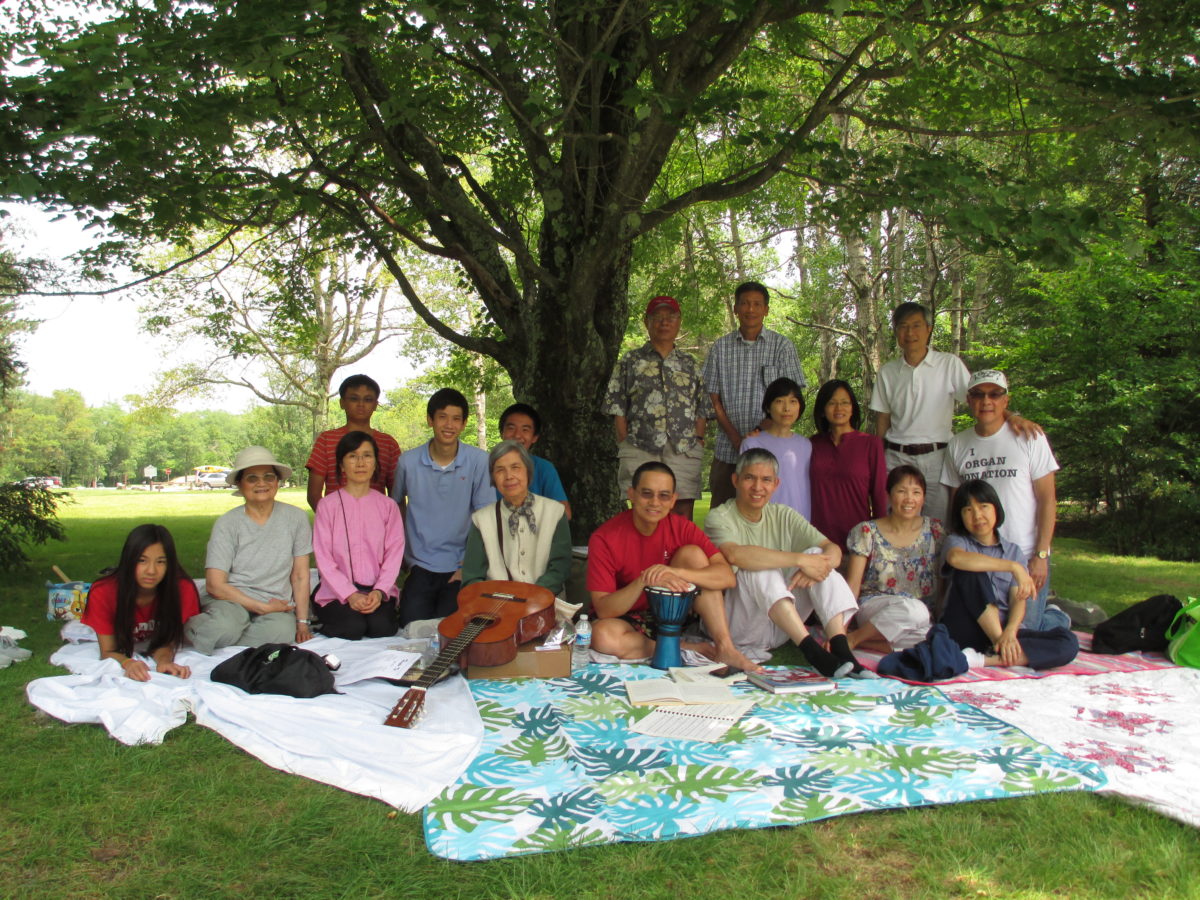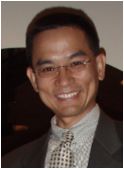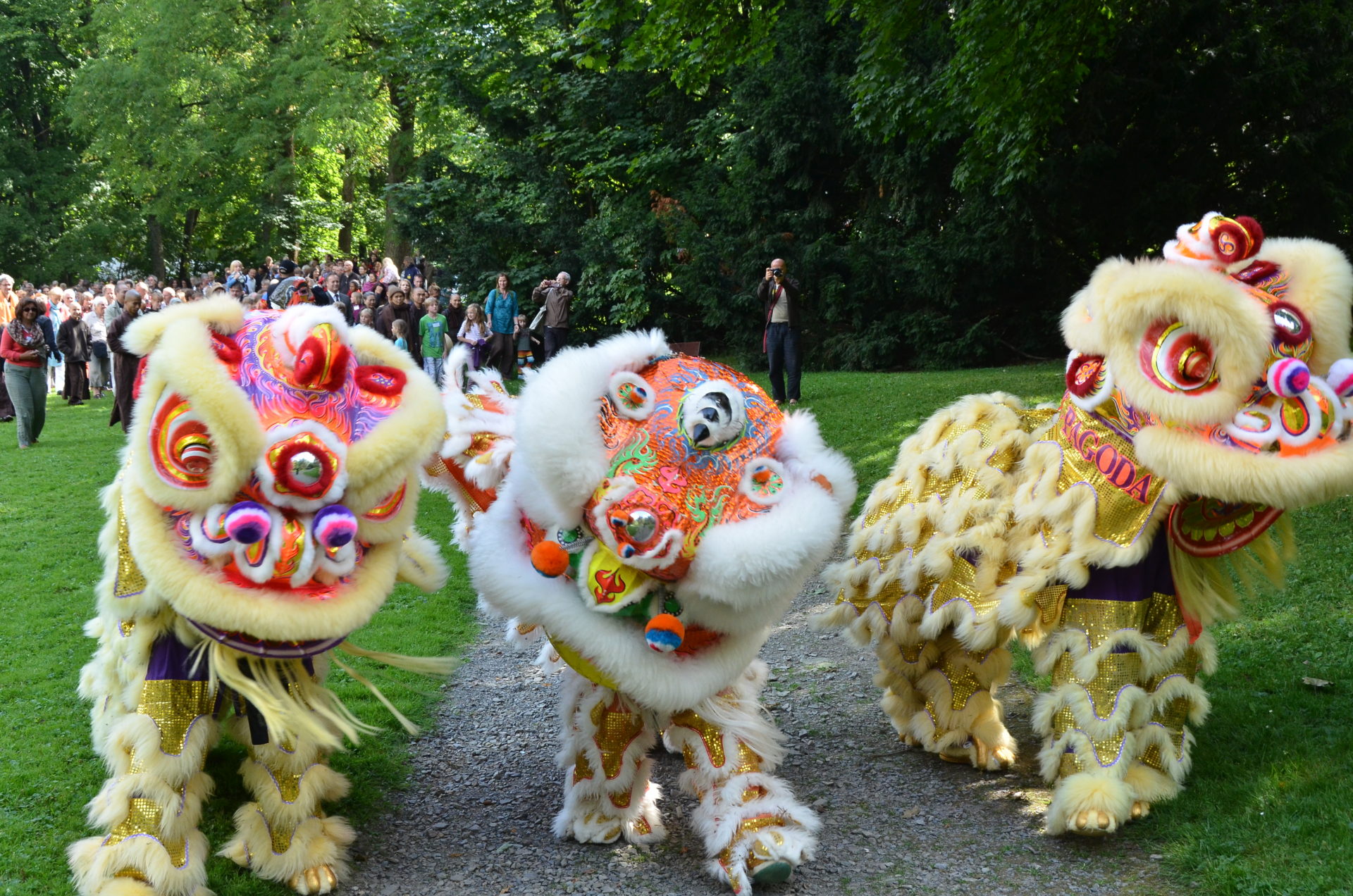Nourishment and Healing
By Nguyen Khoa Duc (Tam Thuong Son)

Her words punctured the still air and rippled through what had been a very calm Dharma discussion. She said repeatedly to the Dharma group, “There is no way I can do that, no way, I am not ready…not now.” I turned to her,
Nourishment and Healing
By Nguyen Khoa Duc (Tam Thuong Son)

Her words punctured the still air and rippled through what had been a very calm Dharma discussion. She said repeatedly to the Dharma group, “There is no way I can do that, no way, I am not ready…not now.” I turned to her, somewhat taken aback by the raw emotion in her voice. The middle-aged lady from Brooklyn who had been mostly silent throughout several Dharma discussions was now full of life and expressing herself in ways only New Yorkers can.
The focus of the Dharma sharing had been on the Five Mindfulness Trainings, as several of us were preparing to participate in the ceremony to be presided over by Thay the next morning. The sharing had been somewhat subdued and uneventful until the last training became the topic of discussion. The lady disclosed to the group that she enjoyed red wine, sometimes lots of it. It had been as much a staple of her diet as food itself. She felt that receiving the Fifth Mindfulness Training would present a conflict with her continuing this habit—one that she was not prepared to give up.
It was October 2009, my first-ever visit to Blue Cliff Monastery. My family had been eagerly awaiting the opportunity to participate in the retreat led by Thay. People had come from everywhere to this quiet town surrounded by picturesque rolling hills. I still vividly remember our short time together, the tranquility and the bonding. Moreover, I was looking forward to the Five Mindfulness Trainings ceremony. Now this lady’s candor made me pause and reflect upon my own situation. I began to mull over what the Fifth Mindfulness Training meant to me; I found myself no longer present in the circle of my Sangha brothers and sisters. My mind started to drift away…to another time and to another place.
Foundation of Suffering
Those of us who grew up in Vietnam during and immediately after the Vietnam War remember that millions of families had to struggle to cope with the physical and emotional hardships of the aftermath. Families were broken apart. Freedom was taken away. Fathers, husbands, brothers, and other loved ones were separated; those left behind did their best to carry on under a dark cloud of doubts, uncertainty, fear, and suppression.
Our family was no different. My father, just like hundreds of thousands of other men and women who were part of the South Vietnamese government, was sent to a concentration camp. I was nine at the time and had no idea why I suddenly had become fatherless. My mother found herself in the unfamiliar role of providing and caring for her four children while trying to keep track of my father’s well-being from afar. I missed him very much. I saw him once, one year after his imprisonment, and not again until our family was reunited here in Virginia in the early 1990s, fifteen years later. I remember many moments when I was alone, crying from missing him. I couldn’t understand why we were apart. Worse, I didn’t know if I’d see him again.
As the years passed, my friends who were in similar situations began to see their family members; one by one they trickled home. Our family was hopeful but was repeatedly devastated as the sparse news of my father seemed to indicate that he was actually being transferred farther and farther from home. My mother did her best to be the father figure to the four of us. She encouraged us to stay active with school and community events so we wouldn’t feel like outsiders, and continued to instill Buddhism in whatever form practicable amidst her own challenges. I sensed that she was overwhelmed with the many responsibilities that fell on her shoulders. Her health suffered from the great burden placed upon her.
In the late 1970s my mother began planning for me to leave Vietnam in search of a better future. I was in my early teens and keenly aware of her intent, but felt the sadness deepen inside me as I was about to be separated from another parent. I prayed that my attempts to flee Vietnam would fail, just so I could see her again. Then I’d regret the prayers when I saw the pain and disappointment on her face after each attempt failed. I finally made it out of Vietnam in 1980.
These experiences became the foundation of my teenage years and adulthood. The trauma and sorrows that peppered my childhood hardened me. I developed a fear of intimacy and trust, feeling that their fragile nature inevitably would create disappointment and sorrow. I began to feel detached from relationships. I yearned for love and envisioned my happiness in the presence of a companion, but I turned away when relationships became real. I feared that the emotional investment would let me down and hurt me, as it did when I lost my family during my earlier years. I struggled to sustain relationships; my insecurity, and as a result, erratic behavior, fractured relationships and ultimately drove those close to me away. I sought loneliness, reasoning that it was a safe haven free from suffering.
To substitute for substantive, meaningful feelings, I developed an insatiable appetite to consume information from the Internet, newspapers, books, magazines, and other sources. I became an avid sports fan; burying myself in somebody else’s world, real or fictional, provided me with with an outlet of comfort. My self-worth was no longer based on my internal being, but rather was dependent on artificial perceptions of the outside world.
Without solidity, I felt a lack of purpose in my life and it was easy for me to develop negative habits as I grew older. I drank several cups of coffee a day to keep me alert; I also consumed large amounts of soda after exercising, which provided momentary relief from stress. I also became a workaholic, a habit I continue to try to transform today. These practices became the food I needed to survive emotionally, and I needed to continue consuming them in order to survive. I simply didn’t realize that I was sustaining myself on the wrong nutrients. I found my source of happiness everywhere but within.
Wake Up Bell
In spite of the constant struggles with relationships, in my early twenties I met a wonderful lady whose enormous tolerance and boundless compassion has led me in a healing process. Twenty-one years later, she continues to walk beside me along the path. I remember that right after we had our first child, I became so submerged in work that one day my wife sent a calendar invite to my Outlook email; she merely wanted to request an appointment with me so we could catch up with each other. That was the wake up bell that, unfortunately only much later, I realized I needed.
I came to mindfulness practice about five years ago, through Days of Mindfulness with the Thuyen Tu Sangha. I began to slow down and learned the importance of healing. I learned how it’s okay to face and take care of pain, as that is the only way to transform suffering. While I embraced the concept of mindfulness, I initially found many activities within the practice—such as mindful eating, walking meditation, and deep relaxation—awkward and counterintuitive. I realized a key component of the practice was the support of the Sangha that provides me the strength and energy to help me recognize, embrace, and take care of my negative energies.
Even today, I find it difficult to invite in the sadness, despair, and regrets of my inner child so that I can touch them. I still don’t feel completely safe with intimacy but have begun to recognize the seeds of suffering within me. I realize that I have not reached the end of my journey on the path to healing; in fact, I feel as if it has barely begun. I also realize that the journey may take more than this lifetime. But now I don’t worry about the future or expectations, for I am resting comfortably in the present and in the presence of my Sangha friends. I continue to move forward in their arms.
Recently I reduced my coffee consumption to one cup a day, and that hasn’t affected my alertness or how I function at work and at home. I no longer depend on a pain reliever to get me through my daily runs; in fact, I’ve discovered that my dependence on the pain reliever was all mental. I still find myself eating lunch with one hand on the computer mouse, feverishly clicking, or with both eyes fixed on my iPhone, but that has lessened as I’ve become more aware of this unwholesome habit energy. Most importantly, the practice of bringing my mind and my breath back into the present has helped me restore my consciousness and the clarity with which I now look at life. The transformation is slow and some days I feel like it does not progress at all; however, I have begun to find—however temporarily—peace and joy sprouting from these seeds. I become more present with my wife and children, and our collective energy has begun to permeate the relationships among us and deepen our appreciation of each other.
The sound of the bell from the monastic leading the discussion brought me back to the present and to the circle of Dharma brothers and sisters. The sharing was about to end, and as everyone was slowly walking away, I caught up to the lady from Brooklyn. I smiled, “Dear sister, I, too, have had the same struggle, for different reasons, and although I am not completely sure, I think that as long as you are mindful in your alcohol consumption, and continue to practice mindfulness with your local Sangha, you will be fine. Taking the Five Mindfulness Trainings doesn’t mean our lives are 100% reflective of them. Being aware of them is a start. I hope to see you tomorrow morning.” She smiled at me, as if she appreciated my advice. Little did she know that my reassurance was directed as much to myself as to her.
THIS ARTICLE WAS ALSO PUBLISHED IN THE SPRING 2013 NEWSLETTER OF THE MINDFULNESS PRACTICE CENTER OF FAIRFAX (www.mpcf.org).

Nguyen Khoa Duc is a member of the Boat of Compassion Sangha in the Washington, D.C., area. He began the practice in 2008. This article was his presentation of the Fifth Mindfulness Training on a Day of Mindfulness, which was led by the Blue Cliff Monastery monastics in Virginia in March of 2013. Duc has been married to Lanh Nguyen for twentyone years. They have two children, Joey (14) and Sydney (12), and live in Vienna, Virginia.

